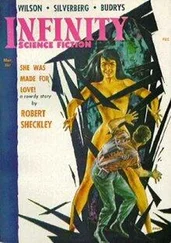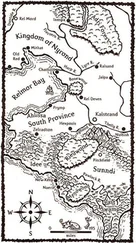Kate Stephens - American Thumb-prints
Здесь есть возможность читать онлайн «Kate Stephens - American Thumb-prints» — ознакомительный отрывок электронной книги совершенно бесплатно, а после прочтения отрывка купить полную версию. В некоторых случаях можно слушать аудио, скачать через торрент в формате fb2 и присутствует краткое содержание. Жанр: foreign_prose, foreign_antique, на английском языке. Описание произведения, (предисловие) а так же отзывы посетителей доступны на портале библиотеки ЛибКат.
- Название:American Thumb-prints
- Автор:
- Жанр:
- Год:неизвестен
- ISBN:нет данных
- Рейтинг книги:3 / 5. Голосов: 1
-
Избранное:Добавить в избранное
- Отзывы:
-
Ваша оценка:
- 60
- 1
- 2
- 3
- 4
- 5
American Thumb-prints: краткое содержание, описание и аннотация
Предлагаем к чтению аннотацию, описание, краткое содержание или предисловие (зависит от того, что написал сам автор книги «American Thumb-prints»). Если вы не нашли необходимую информацию о книге — напишите в комментариях, мы постараемся отыскать её.
American Thumb-prints — читать онлайн ознакомительный отрывок
Ниже представлен текст книги, разбитый по страницам. Система сохранения места последней прочитанной страницы, позволяет с удобством читать онлайн бесплатно книгу «American Thumb-prints», без необходимости каждый раз заново искать на чём Вы остановились. Поставьте закладку, и сможете в любой момент перейти на страницу, на которой закончили чтение.
Интервал:
Закладка:
Kate Stephens
American Thumb-prints
PURITANS OF THE WEST
Let nouther lufe of friend nor feir of fais,
Mufe zow to mank zour Message, or hald bak
Ane iot of zour Commissioun, ony wayis
Call ay quhite, quhite, and blak, that quhilk is blak.
First he descendit bot of linage small.
As commonly God usis for to call,
The sempill sort his summoundis til expres.
If it be heroism that we require, what was Troy town to this?
Robert Louis StevensonPURITANS OF THE WEST
Of local phases of the American spirit, none has incited more discussion than that developed in Kansas. The notion that the citizens of the State are somewhat phrenetic in experimental meliorism; that they more than others fall into abnormal sympathies and are led by aberrations of the crowd—intoxications the mind receives in a congregation of men pitched to an emotional key—this notion long ago startled peoples more phlegmatic and less prone to social vagaries.
Closer consideration shows the Kansas populace distinctly simple in mental habit and independent in judgment. Yet their old-time Grangerism and Greenbackism, and their still later Prohibitionism, Populism, and stay law have caused that part of the world not so inclined to rainbow-chasing to ask who they as a people really are, and what psychopathy they suffer—to assert that they are dull, unthinking, or, at best, doctrinaire.
This judgment antedates our day, as we said. It was even so far back as in the time of Abraham Lincoln, when Kansas was not near the force, nor the promise of the force, it has since become. And it was in that earlier and poorer age of our country when folks queried a man’s suitability and preparedness for the senatorial office. Then when Senatorship fell to General James Lane, and some one questioned the Free-State fighter’s fitness for his duties, President Lincoln is said to have hit off the new Senator and the new State with “Good enough for Kansas!” and a shrug of his bony shoulders. Derogatory catchwords have had a knack at persisting since men first tried to get the upper hand of one another by ridicule, and the terse unsympathy and curl of the lip of Lincoln’s sayings have kept their use to our day.
One outsider, in explaining any new vagary of the Kansans, suggests, with sophomore ease, “The foreign element.” Another tells you, convicting himself of his own charge, “It is ignorance—away out there in the back woods.” “Bad laws,” another conclusively sets down. Opposed to all these surmises and guesses are the facts that in number and efficiency of schools Kansas ranks beyond many States, and that in illiteracy the commonwealth in the last census showed a percentage of 2.9—a figure below certain older States, say Massachusetts, with an illiterate percentage of 5.9, or New York, with 5.5. As to its early laws, they were framed in good measure by men and women 1 1 I include “women” because Lucy Stone once told me she draughted some of the Kansas laws for married women while sitting in the nursery with her baby on her knee. Other women worked with her, she said. Their labor was in the fifties of the nineteenth century—at the height of the movement to ameliorate the legal condition of married women.
of New England blood—of that blood although their forebears may have pushed westward from the thin soil of New England three generations before the present Kansans were born. Again its citizens, except an inconsiderable and ineffective minority, are Americans in blood and tradition.
It is in truth in the fact last named, in the American birth of the people who gave, and still give, the State its fundamental key, that we are to find the causes of Kansas neologism and desire for experiment in every line that promises human betterment. It is a case of spiritual heir-at-law—the persistence of what the great ecclesiastical reactionist of our day has anathematized as “the American Spirit.” For each new ism the Kansans have pursued has been but another form and working in the popular brain of the amicus humani generis of the eighteenth-century Revolutionists, or, as the people of their time and since have put it, “liberty, equality, fraternity.”
Kansas was settled by Americans, American men and American women possessed by the one dominating idea of holding its territory and its wealth to themselves and their opinions. They went in first in the fifties with bayonets packed in Bible boxes. All along railways running towards their destination they had boarded trains with the future grasped close in hand, and sometimes they were singing Whittier’s lines:
“We go to rear a wall of men
On Freedom’s southern line,
And plant beside the cotton-tree
The rugged Northern pine!
“Upbearing, like the Ark of old,
The Bible in our van,
We go to test the truth of God
Against the fraud of man.”
In exalted mood they had chanted this hymn as their trains pulled into stations farther on in their journey, and the lengthening of the day told them they were daily westering with the sun. They had carried it in their hearts with Puritan aggressiveness, with Anglo-Saxon tenacity and sincerity, as their steamers paddled up the muddy current of the Missouri and their canvas-covered wagons creaked and rumbled over the sod, concealing then its motherhood of mighty crops of corn and wheat, upon which they were to build their home. They were enthusiasts even on a road beset with hostiles of the slave State to the east. Their enthusiasm worked out in two general lines, one the self-interest of building themselves a home—towns, schools, churches,—the other the idealism of the anti-slavery faith. They were founding a State which was within a few years to afford to northern forces in the struggle centring about slavery the highest percentage of soldiers of any commonwealth; and their spirit forecast the sequent fact that troops from the midst of their self-immolation would also record the highest percentage of deaths.
They came from many quarters to that territorial settlement of theirs, but the radical, recalcitrant stock which had nested in and peopled the northeastern coast of our country was in the notable majorities from Western States—from Indiana, Illinois, Ohio, and Iowa; and from New England, New York, and Pennsylvania also. Some came, indeed, who could trace no descent from Puritan or Quaker or Huguenot forebear. But there was still the potent heirship of spirit.
To these men nature gave the gift of seeing their side of the then universal question. She added a living sympathy with workers, and an acute sense of the poverty and oppression which humanity at large is always suffering from those who take because they have power. A free discussion of slavery and their opposition to slave-holding had put this deep down in their hearts.
Each man of them—and each woman also—was in fixed principle and earnestness a pioneer, in pursuit of and dwelling in a world not yet before the eyes of flesh but sun-radiant to the eyes of the spirit—the ideal the pioneer must ever see—and holding the present and actual as but a mote in the beam from that central light.
Читать дальшеИнтервал:
Закладка:
Похожие книги на «American Thumb-prints»
Представляем Вашему вниманию похожие книги на «American Thumb-prints» списком для выбора. Мы отобрали схожую по названию и смыслу литературу в надежде предоставить читателям больше вариантов отыскать новые, интересные, ещё непрочитанные произведения.
Обсуждение, отзывы о книге «American Thumb-prints» и просто собственные мнения читателей. Оставьте ваши комментарии, напишите, что Вы думаете о произведении, его смысле или главных героях. Укажите что конкретно понравилось, а что нет, и почему Вы так считаете.












